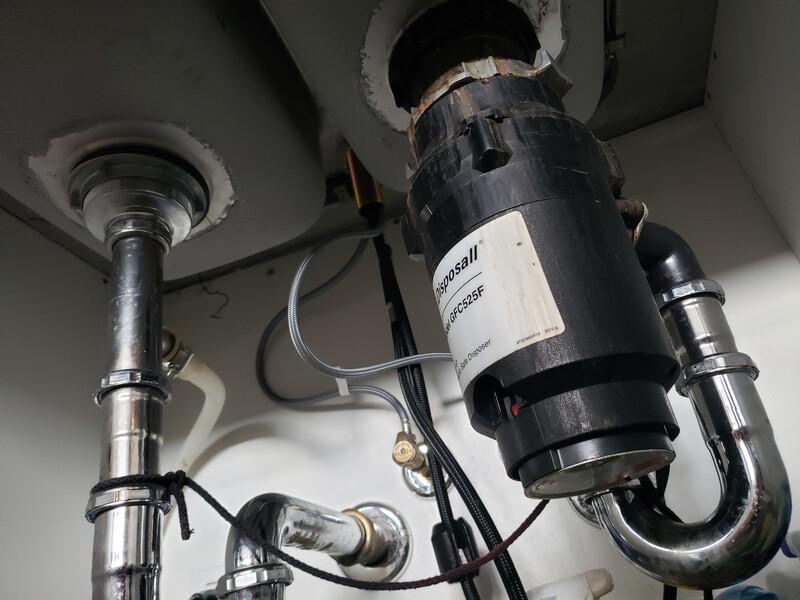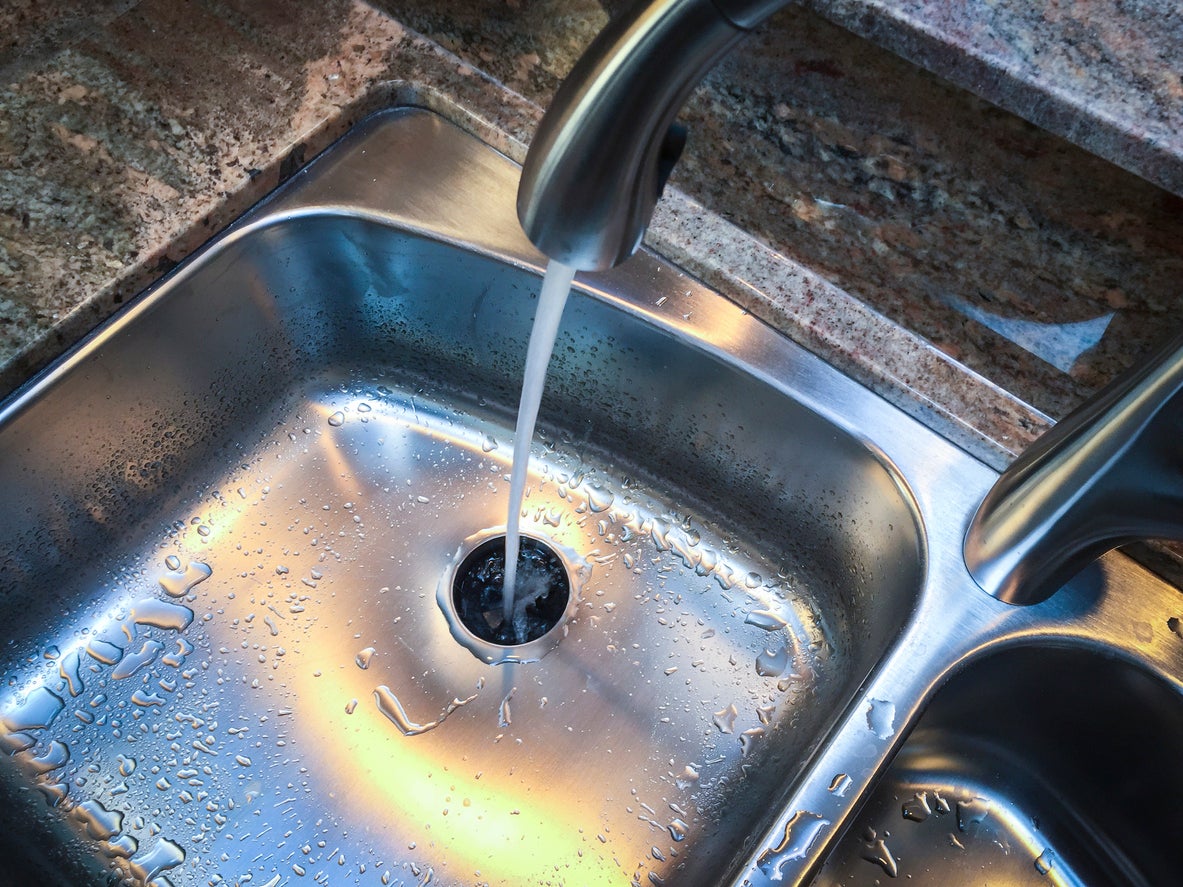Fast Fixes for a Dripping Garbage Disposal
Fast Fixes for a Dripping Garbage Disposal
Blog Article
Just about every person has their unique perception on the subject of How to fix a pretty consistent leak from my garbage disposal.

Garbage disposals are important kitchen devices that assist in taking care of food waste successfully. However, a dripping garbage disposal can be a discouraging and messy trouble to deal with. Luckily, numerous leakages can be fixed easily with a few basic actions. In this post, we will discuss exactly how to fix a dripping waste disposal unit effectively.
Introduction
Waste disposal unit are mounted under kitchen sinks and are created to shred food waste into smaller sized pieces, enabling it to pass through the pipes system easily. While these tools are generally dependable, leakages can occur in time due to wear and tear, loose links, or damage to the unit.
Usual Root Causes Of Leakages in Garbage Disposals
Worn Seals and Gaskets
Seals and gaskets play an essential function in avoiding water from leaking out of the garbage disposal. With time, these elements can degrade, bring about leaks around the disposal unit.
Loose Links
The links between the garbage disposal and the plumbing system can become loose in time, creating water to leak out during operation.
Splits or Holes in the Disposal Unit
Physical damage to the garbage disposal, such as fractures or holes in the housing, can likewise result in leakages.
Determining the Resource of the Leak
Before trying to fix a dripping garbage disposal, it is vital to identify the source of the leakage. This can commonly be done with aesthetic evaluation or by performing basic examinations.
Visual Assessment
Check the waste disposal unit device meticulously for any type of indicators of water leak. Pay very close attention to locations around seals, gaskets, and link factors.
Checking for Leaks
One means to evaluate for leaks is by running water via the disposal device and checking for any type of visible indications of leak.
Devices and Materials Needed for Repairing a Leaking Garbage Disposal
Prior to beginning the repair work procedure, gather the necessary tools and products, consisting of a screwdriver, adjustable wrench, plumber's putty, substitute seals or gaskets, and epoxy or patching product for repairing splits or holes.
Step-by-Step Guide to Fixing a Leaking Garbage Disposal
Switch off the Power
Prior to attempting any type of repair work, make sure that the power to the waste disposal unit unit is shut off to stop the risk of electrical shock.
Situate the Leakage
Determine the precise place of the leak and identify the reason.
Tighten up Links
Use a wrench to tighten any loosened connections between the disposal device and the pipes system.
Replace Seals or Gaskets
If the leakage is because of worn seals or gaskets, remove the old elements and replace them with new ones.
Patching Fractures or Holes
For splits or holes in the disposal system, usage epoxy or a suitable patching product to seal the broken area.
Checking the Waste Disposal Unit After Repair Work
Once the repair service is total, test the garbage disposal by running water with it to ensure that the leakage has been dealt with.
Preventive Maintenance Tips to Avoid Future Leakages
To prevent future leaks, it is essential to execute normal upkeep on your waste disposal unit. This consists of maintaining it tidy, preventing putting non-food things or tough things down the disposal, and occasionally looking for leaks or other issues.
Final thought
Finally, taking care of a dripping garbage disposal is a reasonably uncomplicated procedure that can be completed with fundamental devices and materials. By following the actions outlined in this article and exercising preventive upkeep, you can maintain your garbage disposal in good working condition and avoid costly repair work in the future.
HERE’S HOW TO FIX YOUR GARBAGE DISPOSAL
WHAT TO DO IF SOMETHING IS STUCK IN YOUR GARBAGE DISPOSAL
If the impeller won’t turn, there’s probably something stuck in the disposal. It could be a steak bone or peach pit, although plumbers report pulling all sorts of inappropriate objects out of disposals, such as bottle caps or aluminum foil. Make sure power to the disposal is off, and look inside to see if you can see the source of the jam.
Never stick your fingers in a disposal. Pull out anything you see with tongs or pliers.
If the disposal still won’t work, it may be time to call a plumber or consider buying a new disposal. GEM Plumbing & Heating is here for all of your garbage disposal needs.
WHAT TO DO IF YOUR GARBAGE DISPOSAL DRAIN IS CLOGGED
Take everything out from underneath your sink and put a bucket or other container under your disposal to catch any water that drains out. Disconnect your disposal from the power supply. If it’s plugged into a wall outlet, unplug it. If it’s hardwired into an electrical box, go to the electrical panel and turn off the breaker for the disposal. Pour ¼ cup of baking soda into the drain, followed by ½ cup of white vinegar. Give the solution a few minutes to fizz and do its work. Look into the disposal with a flashlight to see if you can see an object that might be causing the clog. If you see it, remove it using tongs or pliers. MORE TIPS ON DEALING WITH A CLOGGED GARBAGE DISPOSAL
Never use drain cleaner in a garbage disposal. It can damage the plastic parts inside the disposal. You can also be splashed with the caustic liquid while working to clear the clog. Beware! Never stick your fingers into a garbage disposal. Trust us — not a good idea. In many instances, your dishwasher drains through your garbage disposal. This allows the disposal to grind any large food particles that may be drained out of your dishwasher. There are some jurisdictions, however, where the plumbing code prohibits such a connection. WHAT TO DO WHEN YOUR DISHWASHER DRAINS THROUGH THE DISPOSAL
Run some water in the sink so your plunger has at least a ½-inch of water to create a seal and plunge vigorously up and down several times. You may need to repeat this several times. Run hot water down the drain to clear any residue that remains.

Do you appreciate reading up on Why Is ? Create a remark down below. We'd be pleased to hear your suggestions about this content. We hope that you come back again in the future. Are you aware of someone else who is looking into the topic? Why not promote it. I praise you for your time. Come back soon.
View More Report this page